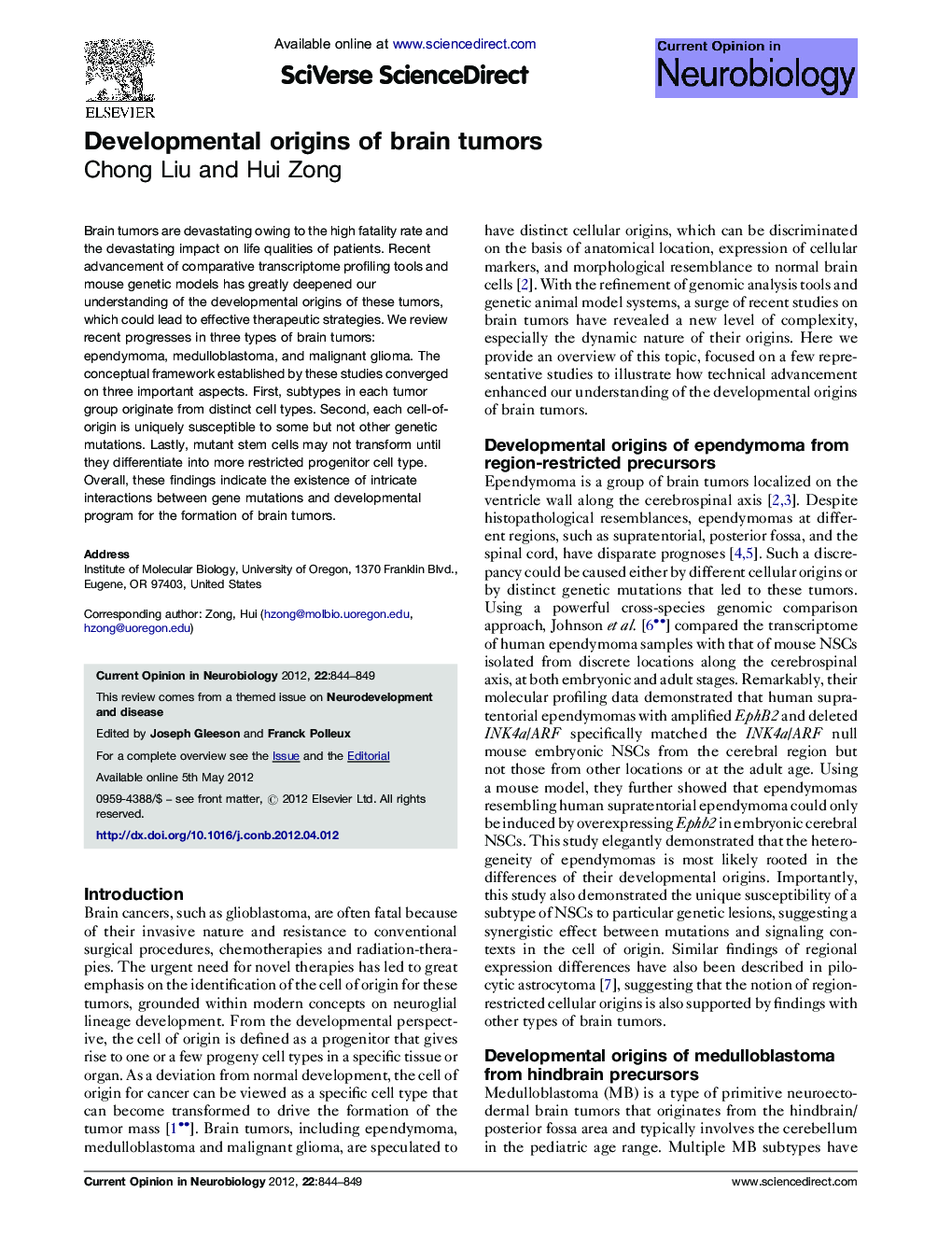| Article ID | Journal | Published Year | Pages | File Type |
|---|---|---|---|---|
| 6267319 | Current Opinion in Neurobiology | 2012 | 6 Pages |
Brain tumors are devastating owing to the high fatality rate and the devastating impact on life qualities of patients. Recent advancement of comparative transcriptome profiling tools and mouse genetic models has greatly deepened our understanding of the developmental origins of these tumors, which could lead to effective therapeutic strategies. We review recent progresses in three types of brain tumors: ependymoma, medulloblastoma, and malignant glioma. The conceptual framework established by these studies converged on three important aspects. First, subtypes in each tumor group originate from distinct cell types. Second, each cell-of-origin is uniquely susceptible to some but not other genetic mutations. Lastly, mutant stem cells may not transform until they differentiate into more restricted progenitor cell type. Overall, these findings indicate the existence of intricate interactions between gene mutations and developmental program for the formation of brain tumors.
⺠Distinct developmental origins and susceptibility to mutations contribute to subtypes of brain tumors. ⺠Gene expression profiling, especially cross-species analysis, is a powerful tool to reveal the heterogeneity of tumor origin. ⺠Mouse cancer models with lineage tracing capacity provide concrete evidences of brain tumor origins. ⺠Cell-of-mutation and cell-of-origin are distinct concepts: former refers to cells with initial mutations, while the latter refers to cells that transform into tumors.
